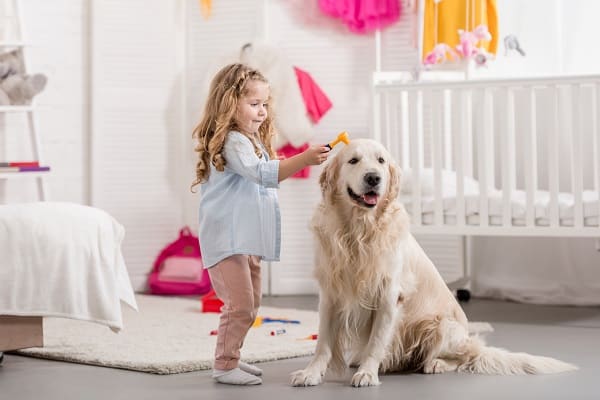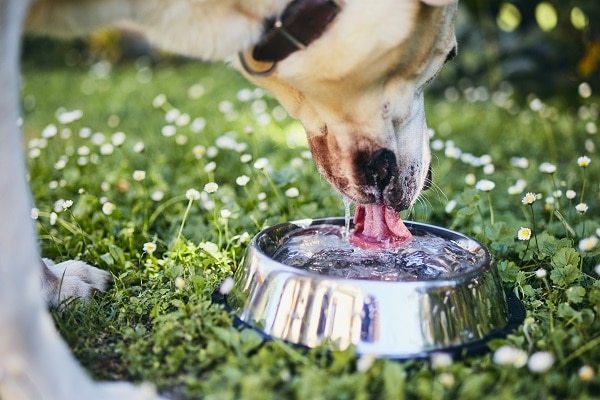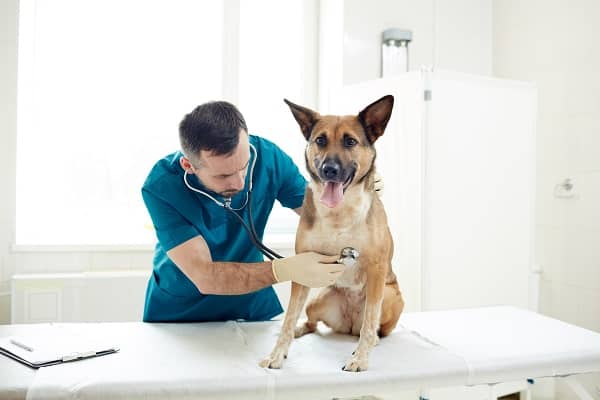If your pet has been diagnosed with kennel cough, you may feel overwhelmed and unsure what to do. Kennel cough is a highly contagious respiratory infection that can affect dogs of all ages but is most commonly seen in puppies and young adult dogs. This post will outline the different things you can do to help your pet recover from kennel cough as quickly as possible! It will also discuss how to prevent kennel cough in the future.
What Is Kennel Cough?

Kennel cough is a highly contagious respiratory infection that is common in dogs. The disease is caused by several different viruses and bacteria, including Bordetella bronchiseptica, parainfluenza virus, and adenovirus type 2. Kennel cough is spread through close contact with infected dogs, usually through coughing and sneezing. The disease can also be spread through contact with contaminated surfaces, such as food and water bowls.
Symptoms of kennel cough can vary heavily depending on the severity of the case. In most cases, the disease is mild and will resolve independently. However, some dogs may require antibiotics to clear the infection. Kennel cough is a highly contagious disease that can be easily spread from dog to dog. Therefore, it is important to maintain good hygiene practices to help prevent the spread of the disease.
The Signs Your Pet Has Kennel Cough

If you’ve ever had a cold, you know how miserable it can make you feel. Your nose is constantly runny, you’re sneezing and coughing all the time, and your throat feels like it’s on fire. Now imagine how your poor pet feels when they come down with kennel cough. Kennel cough is common in dogs but can also affect cats and other animals. The good news is that kennel cough is usually not serious and will resolve itself within a few weeks. However, in the meantime, your pet will likely be feeling pretty miserable.
So how can you tell if your pet has kennel cough? The most common symptom is a persistent cough that sounds dry and hacking. Other symptoms may include sneezing, runny nose, lethargy, and lack of appetite. Other less common symptoms may include vomiting, fever, and pneumonia. If your pet is showing any of these symptoms, it’s important to contact your veterinarian immediately.
What To Do If Pet Gets Kennel Cough
As you are learning, kennel cough isn’t something to just ignore. But, if you are completely unaware of how to handle it, it may seem like there is nothing you can do. However, there is a list of actions you can take to get your furry friend back to being themselves:
Take Them To The Vet

Most pet owners have experienced the frustration of dealing with a sick animal. Whether it’s a kennel cough or something more serious, illnesses can quickly take their toll on your furry friends. When your pets are sick, it’s natural to want to do everything you can to help them recover. However, sometimes the best thing you can do is simply take them to the veterinarian.
After all, vets have access to the latest diagnostic tools and treatments and can often identify problems you might miss. In addition, they can provide you with invaluable advice on how to care for your sick pets. So, if your pet shows kennel cough, you should visit your veterinarian.
Give Them Honey
Once you have taken your pet to the vet, you can do a few things to help ease your dog’s symptoms and speed up their recovery. Honey has long been used as a natural remedy for coughs, and it can also be helpful for dogs with kennel cough. Honey helps to soothe the throat and may also help to reduce inflammation. To give your dog honey, mix it with some warm water or broth and offer it to him in a bowl. You can also add a spoonful of honey to his regular food.
Start with a small amount and increase it gradually until you reach the desired amount. Be sure to talk to your veterinarian before giving your dog honey, as some dogs may be allergic to it. Also, never give honey to puppies under the age of 12 weeks. If your dog’s symptoms persist or worsen, consult your veterinarian.
Keep Them Hydrated

While there is no cure for kennel cough, it is important to keep your pet hydrated to help ease the symptoms and speed up the recovery process. Offer your small dog sips of water frequently throughout the day, and encourage them to drink by adding a little broth or chicken juice to the water.
You can also give your dog ice cubes to lick or put a little water in their food. Keeping your pet hydrated will help thin the mucus and make it easier for them to breathe, and it will also help flush the virus out of their system.
Expose Them To Steam

Kennel cough can be treated with antibiotics, but many dog owners prefer to use natural remedies. One popular method is exposing your pet to steam. This can be done by placing your dog in the bathroom with the shower running or by using a humidifier in the room where your dog sleeps.
The steam will help to loosen congestion and make it easier for your dog to breathe. Just be sure not to expose your pet to too much heat, which could cause further irritation. If you’re unsure about how to proceed, talk to your veterinarian for advice.
Give Them A Cough Suppressant

Another simple home treatment is to give your dog a cough suppressant. This will help to relieve some of the discomforts and allow your dog to rest and heal. Just be sure to check with your veterinarian first to make sure the cough suppressant is safe for your dog and will not interact with any other medications they may be taking.
Some options for natural cough suppressants include lemon water and apple cider vinegar. However, your vet may suggest using a medicated cough suppressant instead, depending on the severity of your dog’s symptoms.
How To Prevent Kennel Cough In The Future

Kennel cough is often spread through contact with other dogs, so it’s important to take precautions if you think your dog may be exposed. The best way to prevent kennel cough is to vaccinate your dog against the disease. There are two types of vaccines available: intranasal and injectable. Intranasal vaccines are given as a nose drop, while injectable vaccines are given as an injection by your veterinarian. In addition, some dogs may require booster vaccinations every 6-12 months, so be sure to talk to your vet about the best vaccination schedule for your dog.
In addition to vaccinating your dog, you can help prevent the spread of kennel cough by keeping your dog away from other dogs coughing or showing signs of illness. This may mean avoiding the dog park or doggy daycare for a while. If your dog does come in contact with a sick dog, be sure to bathe them and disinfect any areas they may have been in contact with.
Be Aware Of What To Do When Your Pet Gets Kennel Cough!
Kennel cough is a common disease that can be easily spread between dogs. However, there are several things you can do to treat your dog’s symptoms and help them recover quickly. Be sure to talk to your veterinarian about the best course of treatment for your pet, and take precautions to prevent the spread of kennel cough in the future. While your furry friend may be sick now, with the proper care, they’ll be back to their normal selves in no time!